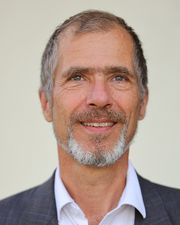Kaspar Wyss, Professor, PhD, MPH
Function(s)
Senior Project Leader
Organisational Entity
Kaspar Wyss (male) is Professor at the University of Basel. He is trained in Biology (MSc) and Epidemiology (PhD) and also holds an Masters in Public Health and an MBA. He acted as deputy director of the Swiss TPH and headed the Swiss Centre for International Health, one of five departments at the Swiss Tropical and Public Health Institute over a ten years period up to 2025. In this role he has been overseeing a team of 70 staff members in Basel and around 200 collaborators abroad focusing on health systems development primarily in low- and middle income countries. Presently he is project leader and is in charge of managing transnational research and implementation projects in Switzerland, Eastern Europe and Africa, funded by various agencies, such as the European Commission under Horizon or the Swiss Agency for Development and Cooperation.
His interests and expertise pertains to health systems governance, human resource development, successful approaches to strengthening health service delivery and the role and importance of managerial and policy processes. He has a strong and good understanding of health and social systems based on his epidemiological foundations. His careers underlines how research evidence on disease systems and health systems translates into concrete action on health/disease and social systems and in finding solutions to the benefit of population health and marginalised groups within the framework of public health programs. The highly relevant research results conducted over the pasts 30 years on issues relating to the decentralization of health planning, access of deprived population groups such as migrants to basic services, health financing and the need for staff and health workforce development has been incorporated by various programs and interventions. This is underlined by his international advisory role for agency such as for example the World Health Organisation, Unicef, the World Bank or the Swiss Agency for Development and Cooperation.
The carer of Kaspar Wyss reveals how to work successfully at the interface between research and implementation. Thus, Kaspar Wyss is a very experienced and respected applied health researcher. He has a deep knowledge of health systems in a number of countries acquired through long-term projects that he has managed in Asia, Africa and Switzerland. He has published extensively on public health topics in Switzerland as well as low and middle income countries across a range of journals. A number of articles are highly cited. He is experienced in the area of implementation science built on a range of research methods from quantitative to qualitative and increasingly genuine mixed methods of enquiry that are becoming standard in the study of health system
For the University of Basel and other universities he teaches on health systems. Kaspar Wyss acts further as supervisor for several PhD and MSc students.He is board member of the Swiss School of Public Health.
Latest Publications
All PublicationsFrei A et al. ASSIP flex Suizidprävention flexibel und nachhaltig: ein Behandlungsangebot für Menschen nach einem Suizidversuch. Ther Umsch. 2025;82(2):62–69. DOI: 10.23785/TU.2025.02.006
Horton S et al. Costs of testing sick children in primary care with pulse oximetry: Evidence from four countries, both with and without electronic clinical decision support. PLOS Glob Public Health. 2025;5(7):e0004644. DOI: 10.1371/journal.pgph.0004644
Langet H et al. Effectiveness of introducing pulse oximetry and clinical decision support algorithms for the management of sick children in primary care in Kenya and Senegal on referral and antibiotic prescription: the TIMCI quasi-experimental pre-post study. eClinicalMedicine. 2025;83:103196. DOI: 10.1016/j.eclinm.2025.103196
Matthys B et al. Development and implementation of a digital clinical decision support system to increase the quality of primary healthcare delivery in a refugee setting in Chad. BMC Prim Care. 2025;26:113. DOI: 10.1186/s12875-025-02818-w
Muho A, Brugger C, Salzmann T, Wyss K, Steinmann P. Sustainability of health system strengthening interventions implemented at primary healthcare level: a scoping review. BMJ Open. 2025;15(4):e095516. DOI: 10.1136/bmjopen-2024-095516
Tyagi M et al. Barriers and enablers of using a clinical decision support algorithm to consult sick children at primary health facilities: a qualitative study from Uttar Pradesh, India. Clin Epidemiol Glob Health. 2025;34:102038. DOI: doi.org/10.1016/j.cegh.2025.102038
Werdin S et al. Impact of four integrated self-management interventions on psychiatric readmissions in patients at suicide risk: an interrupted time series analysis in Switzerland. J Affect Disord. 2025;388(in press). DOI: 10.1016/j.jad.2025.119604
Werdin S, Hollenstein E, Wyss K. Promoting the sustainability of suicide prevention projects in Switzerland. Public Health Rev. 2025;46:1607824. DOI: 10.3389/phrs.2025.1607824
Baumann A, Wyss K. Exploring evidence use and capacity for health services management and planning in Swiss health administrations: a mixed-method interview study. PLoS One. 2024;19(5):e0302864. DOI: 10.1371/journal.pone.0302864
Beynon F et al. The Tools for Integrated Management of Childhood Illness (TIMCI) study protocol: a multi-country mixed-method evaluation of pulse oximetry and clinical decision support algorithms. Glob Health Action. 2024;17:2326253. DOI: 10.1080/16549716.2024.2326253
